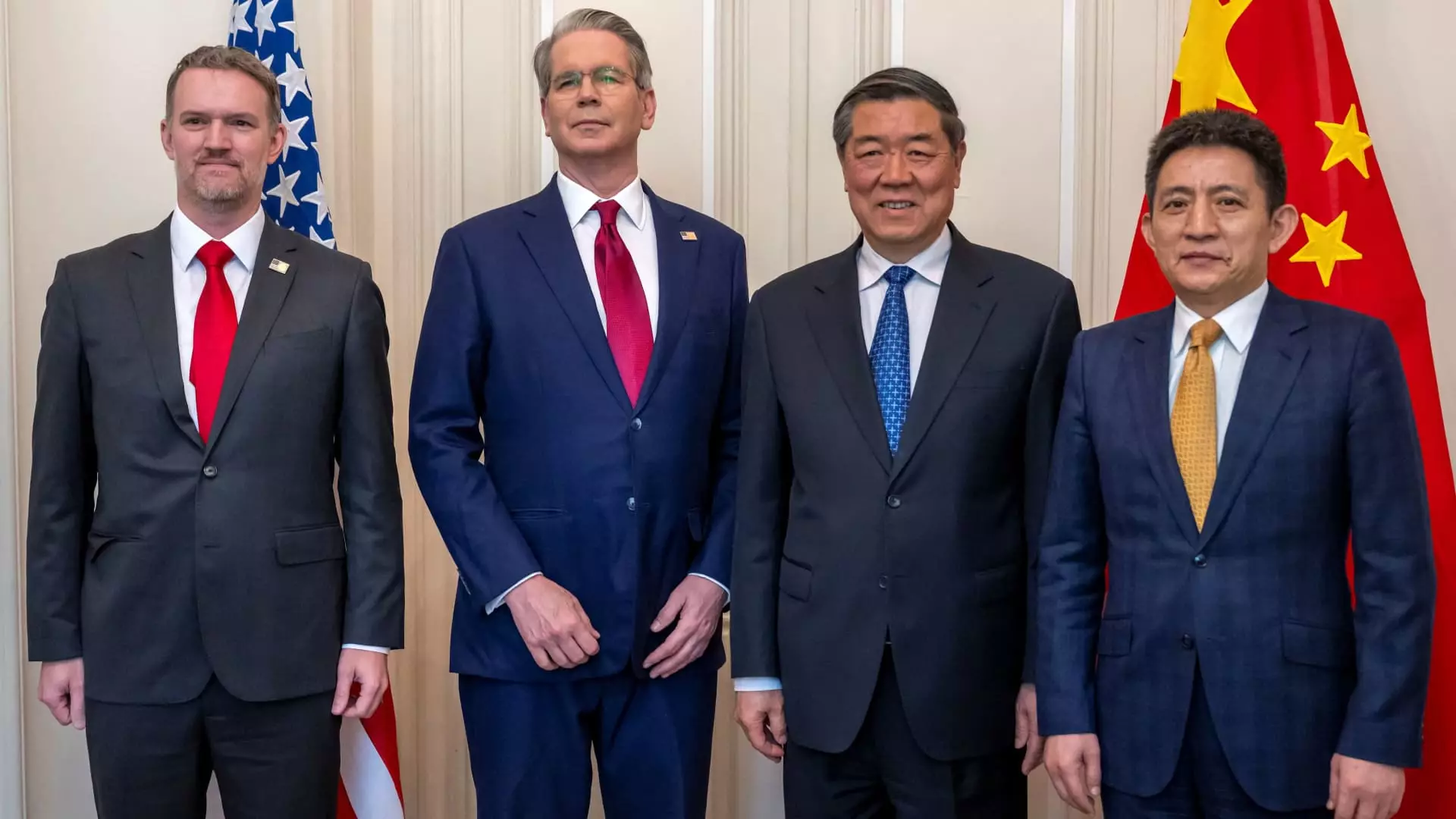In a world where economic stability is a fragile entity, the ongoing trade negotiations between the United States and China represent not just typical political maneuvering, but a perilous balancing act that could tip the scales toward chaos. The recent gathering in London, featuring U.S. Treasury Secretary Scott Bessent, Commerce Secretary Howard Lutnick, and Trade Representative Jamieson Greer, alongside China’s Vice Premier He Lifeng, marks another chapter in this complex saga. While the political elite may portray these discussions as constructive efforts to defuse an escalating trade dispute, the reality is much darker: the situation is spiraling toward a full-blown economic confrontation that would reverberate worldwide.
Escalation: A Dangerous Cycle
The irony of the London talks is striking. Just weeks ago, President Trump’s aggressive import tariffs sent shockwaves through global markets, triggering a retaliatory response from Beijing. What began as a tit-for-tat exchange has transformed into a near-constant escalation of economic hostilities. As both nations hurl accusations regarding violations of previous agreements, the notion of diplomacy seems increasingly obsolete. The Geneva agreement, which momentarily quelled tensions by temporarily slashing tariffs, now appears to be nothing more than a mirage amid ever-escalating hostilities. This precarious landscape suggests that both powers are not merely at odds over trade policy; they are engaged in an existential struggle for dominance in a rapidly evolving global economy.
Beyond Trade: The Underlying Wars
The crux of the U.S.-China rivalry transcends mere tariffs; it encompasses technology, defense, and even data governance. Experts like Rebecca Harding crystalize this sentiment perfectly, articulating that what’s transpiring is not just a battle over goods, but an overarching clash of ideologies. China’s technological ambitions challenge America’s supremacy in sectors critical to national security and economic future. As both countries rapidly advance in areas like artificial intelligence and munitions production, the stakes are alarmingly high—not just for these nations, but for the stability of the global order itself.
President Trump and his administration may project confidence, asserting that talks are underway, but the sense of urgency is palpable. The frayed relationship further complicates matters, as both nations are now armed with policy shifts that threaten the fabric of international cooperation. These discussions in London may come off as constructive dialogue, but behind closed doors, both parties seem to be preparing for an economic cold war that will inevitably affect the broader global community.
False Hope: The Illusion of Progress
Internal sentiment amongst analysts presents a sobering contrast to any optimistic narrative pitched by political leaders. Zhiwei Zhang, president of Pinpoint Asset Management, aptly characterizes the outlook of these negotiations: tepid at best. The expectation of real progress—or, heaven forbid, a comprehensive agreement—appears naïve. Eyebrows are raised at the notion that there could be minor resolutions regarding specific industries, like rare earths, yet these will do little to stem the larger tide of animosity and suspicion.
The challenges presented extend beyond economic impacts; they precipitate a retreat into isolationism and protectionism that contradicts the fundamental tenets of a globalized economy. The clashing of these titans creates ripples that ultimately threaten the livelihoods of millions, with consumers facing higher prices and reduced access to goods.
What Lies Ahead?
The forthcoming months will unfold a landscape greased with uncertainty. No matter how many high-profile meetings occur, the underlying issues are systemic and deeply rooted. From technology to trade, the parameters of competition are fast evolving, and what remains clear is that the conversation surrounding U.S.-China relations has morphed into a high-stakes contest. The optimism that once marked diplomatic exchanges has dissipated, leaving in its wake a daunting challenge that will require urgent and astute leadership—something that appears to be severely lacking from both sides. The apathy of politicians and their inability to engage in meaningful dialogue may just lead to an era of unprecedented economic turbulence.

